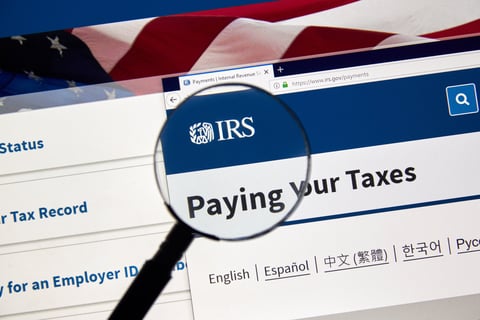What if I can't pay my taxes?
You must file your tax return, but there are options for payment!
EVERYONE
Karianne Connor
5/30/20243 min read
What Are Your Options If You Can’t Pay Your Taxes on Time?
Owing taxes you can’t afford to pay can be stressful, but the worst thing you can do is ignore the problem. The IRS offers several options to help taxpayers who are unable to pay in full by the deadline. Here’s what you can do:
1. File Your Tax Return on Time (Even If You Can’t Pay)
Even if you don’t have the money to pay, you should still file your tax return by the deadline. Filing on time helps you avoid the “Failure to File” penalty, which is much higher than the penalty for not paying.
Failure to File Penalty: 5% of the unpaid tax per month (up to 25%)
Failure to Pay Penalty: 0.5% of the unpaid tax per month (up to 25%)
By filing your return on time, you avoid the steep Failure to File penalty and only face the smaller Failure to Pay penalty.
2. Apply for a Payment Plan (Installment Agreement)
The IRS offers short-term and long-term payment plans to help you pay what you owe over time.
Short-term payment plan: If you owe less than $100,000, you can apply for a plan that allows you to pay within 180 days.
Long-term payment plan (Installment Agreement): If you owe less than $50,000, you may qualify for a monthly installment plan, which allows you to spread payments out over several years.
👉 How to Apply: You can request a payment plan online at IRS.gov or by filing Form 9465.
3. Request an Offer in Compromise (OIC)
If you’re facing serious financial hardship, you might qualify for an Offer in Compromise, which allows you to settle your tax debt for less than what you owe. However, the IRS will only approve an OIC if they believe:
✔ You cannot afford to pay your full tax debt, even with an installment plan.
✔ Paying the full amount would cause significant financial hardship.
✔ Your financial situation is unlikely to improve in the near future.
👉 How to Apply: You’ll need to submit Form 656 and a $205 application fee, along with detailed financial information proving your inability to pay.
🔹 Pro Tip: The IRS rejects most OIC applications, so this option is best suited for taxpayers in truly difficult financial situations.
4. Temporarily Delay Collection (Currently Not Collectible Status)
If you’re unable to pay due to financial hardship, the IRS may grant you "Currently Not Collectible" (CNC) status, meaning they pause collection efforts until your financial situation improves.
✔ You must prove that paying your tax debt would prevent you from covering basic living expenses (e.g., rent, food, utilities).
✔ Interest and penalties continue to accumulate, but the IRS won’t garnish wages or levy your bank account while you’re in CNC status.
👉 How to Apply: Call the IRS or submit Form 433-A (for individuals) or 433-F (for businesses) with proof of financial hardship.
5. Use a Personal Loan or Credit Card (Last Resort Option)
While not ideal, using a low-interest personal loan or credit card to pay your tax debt may be a better option than incurring IRS penalties and interest.
🔹 IRS interest rates (currently around 8%) can be higher than some personal loan rates.
🔹 However, avoid high-interest credit cards unless you can pay off the balance quickly.
What Happens If You Fail to File and Pay?
If you fail to file your tax return and don’t pay your taxes, the consequences can be severe:
1.Failure to File Penalty: 5% of unpaid taxes per month (up to 25%)
2. Failure to Pay Penalty: 0.5% of unpaid taxes per month (up to 25%)
3. Interest Charges: The IRS charges interest on unpaid taxes daily, making your balance grow over time.
4. Tax Liens: The IRS may place a federal tax lien on your property, affecting your ability to sell assets or get credit.
5. Wage Garnishment & Bank Levies: The IRS can seize wages, freeze bank accounts, or take Social Security payments to recover unpaid taxes.
6. Loss of Refunds & Credits: If you don’t file, you won’t be able to claim tax refunds, deductions, or credits you’re entitled to.
7. Possible Criminal Charges: While rare, willfully evading taxes can result in fines or even jail time in extreme cases.
Bottom Line: Take Action ASAP
If you can’t pay your taxes, don’t ignore the problem. File your return on time, explore IRS payment options, and contact a tax professional.


Services
© 2025. All rights reserved.
Evening and weekend appointments
